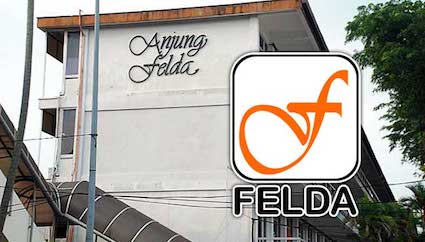How Malaysians lost RM1.2 billion in a year because of Felda

(ipom.global) – It’s been slightly more than a year since the controversial purchase of PT Eagle High Plantation by Felda from Chinese Indonesian tycoon Peter Sondakh’s Rajawali Group. Felda, via its special purpose vehicle FIC Properties Sdn Bhd had acquired 37% of the shares of Eagle High for approximately USD500 million, paying approximately IDR580 per share, at an extremely high premium of 95% to its closing share price at the point of acquisition.
A due diligence report prepared in relation to the Eagle High acquisition by KPMG and sighted by IPOM clearly detailed numerous concerns/improprieties within Eagle High, amongst others, cash flow problems, inflated acquisition price of Eagle High, non-compliance with laws and regulations, excessive borrowings and excessive amounts which are due for repayment to the banks and tax evasion. The report also detailed inter-company interest free advances amounting to USD26 million – the repayment of which will not forthcoming according to the Management of Eagle High.
The deal was slammed by critics and experts due to it being overpriced and also due to the state of affairs within Eagle High. However, due to the powers that be in Malaysia, the deal went through. Government funds were used to finance the deal which many saw as a bailout for Peter Sondakh, an Indonesian businessman with strong political ties in Malaysia.
Slightly more than a year later, Eagle High’s share price trades at a measly IDR204 per share, less than half what Felda paid. This means that Felda is sitting on a paper loss of approximately USD300 million. Additionally, Eagle High’s market capitalisation is just below USD420 million, which means Felda’s 37% is now valued at just USD155.4 million, less than one-third what it paid.
Additionally, Eagle High has been recording losses for the past few years. Further, in April 2017, a regulation was passed stating that the European Union will ensure that palm oil imported into the European Union come from sustainable sources and to only import sustainable palm oil after 2020. This does not bode well for Eagle High, whose unsustainable palm oil practices as well as its lack of RSPO and ISPO certifications have been widely documented. Given this, it is unlikely that Eagle High’s revenues will improve in the coming years. In fact, it is more likely to decline once the European Union regulation takes effect.
All in all, it looks like Felda’s investment in Eagle High has proven to be a complete bust and did not pan out the way Felda had hoped.
Then again, no one is surprised by this.

